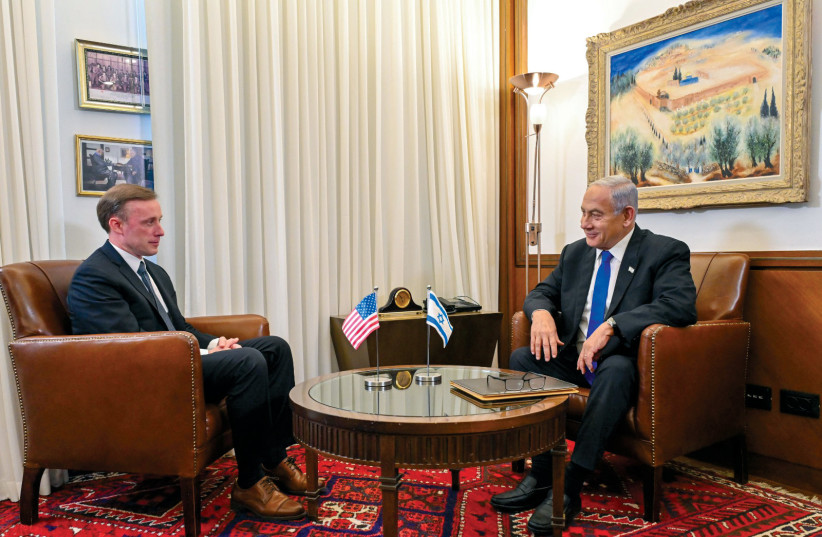US President Joe Biden said on Friday a deal may be on the way with Saudi Arabia after talks his national security advisor had with Saudi officials in Jeddah aimed at reaching a normalization in relations between the kingdom and Israel.
“There’s a rapprochement that may be underway,” Biden told contributors to his 2024 reelection campaign at an event in Freeport, Maine.
Biden did not give details about the possible deal.
US officials have sought for months to reach what would be a historic agreement between the long-time adversaries but the Saudis have been resistant.
The US-Saudi pact could involve normalization with Israel
New York Times columnist Thomas Friedman, in a piece published on Thursday, said Biden was considering whether to pursue a US-Saudi mutual security pact that would involve Saudi Arabia normalizing relations with Israel.

White House national security adviser Jake Sullivan, one of Biden’s most trusted aides, was in Jeddah this week with Middle East envoy Brett McGurk discussing the possibility of a normalization deal, White House officials said.
US officials see a potential deal between Israel and Saudi Arabia as possible after the administration of former President Donald Trump reached similar agreements between Israel and Morocco, Sudan, Bahrain and the United Arab Emirates under the rubric of the 2020 Abraham Accords.
In an interview with Fox News published Friday, Netanyahu said an Israeli-Saudi deal “could be very close if the Saudis want it, it’s up to them.”
“I think this is a great thing if we have it. We will have tremendous economic benefits, it will have tremendous strategic benefits. It will be a blow to Iran and a boon to Israel and the US and the Arab world as well,” Netanyahu said.
An Israel-Saudi deal would “be a pivot of history. It will effectively end the Arab-Israeli conflict and enable us to end the Palestinian-Israel conflict,” Netanyahu said.
Netanyahu has long believed that Israel must first make peace with the Arab world and only then with the Palestinians.
“The Palestinians, who refuse to recognize Israel in any boundary, are only 2% of the Arab world. If we make peace with the other 98%, the Palestinians will stop believing that one day the broad mass of the Arab world will destroy or dissolve Israel and that will bring them into a more realistic position,” he said.
Friedman in his Thursday column, however, suggested that Israel might have to pay a hefty price for such a deal – including a commitment to never annex portions of the West Bank and to halt any settlement construction beyond the built-up areas of existing communities.
He said Israel could be asked to transfer portions of Area C of the West Bank, which is now under IDF military and civilian rule, to areas A and B, which are under Palestinian Authority control.
Netanyahu’s government is unlikely to agree to such steps.
